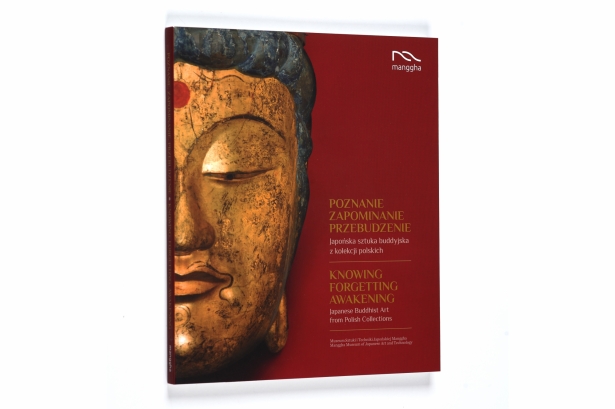Knowing. Forgetting. Awakening.
Editing: Anna Król
ISBN: 978-83-62096-71-8
Pages: 156
Format: 280 x 240 x 12 mm
Language: polish and english
Published: 2018
paperback
ISBN: 978-83-62096-71-8
Pages: 156
Format: 280 x 240 x 12 mm
Language: polish and english
Published: 2018
paperback
The exhibition ‘Knowing. Forgetting. Awakening. Japanese Buddhist Art from Polish Collections’, prepared by the Manggha Museum of Japanese Art and Technology as part of its Buddhism project, highlights, for the first time in Poland, the phenomenon of Japanese Buddhist art. This iconographic exhibition showcases a different culture’s cult- objects and works of art, representing a different visual language. A difficult language. To get closer to it, Roland Barthes suggests an experiment consisting in disintegrating our own reality in order to discover a new language, a different syntax. To carry it out successfully, when approaching a masterpiece, we ought not
to read it (to read its symbolism) but to follow the trajectory of the hand which has written it: a true writing, since it produces a volume and since, forbidding our reading to be the simple decoding of a message (however loftily symbolic) it permits this reading to repeat the course of the writing’s labor.[1]
Perhaps this is exactly what will happen during the exhibition ‘Knowing. Forgetting. Awakening’.
[1] Roland Brthes, Empire of Signs, trans. Richard Howard, New York, 1992, p. 45
